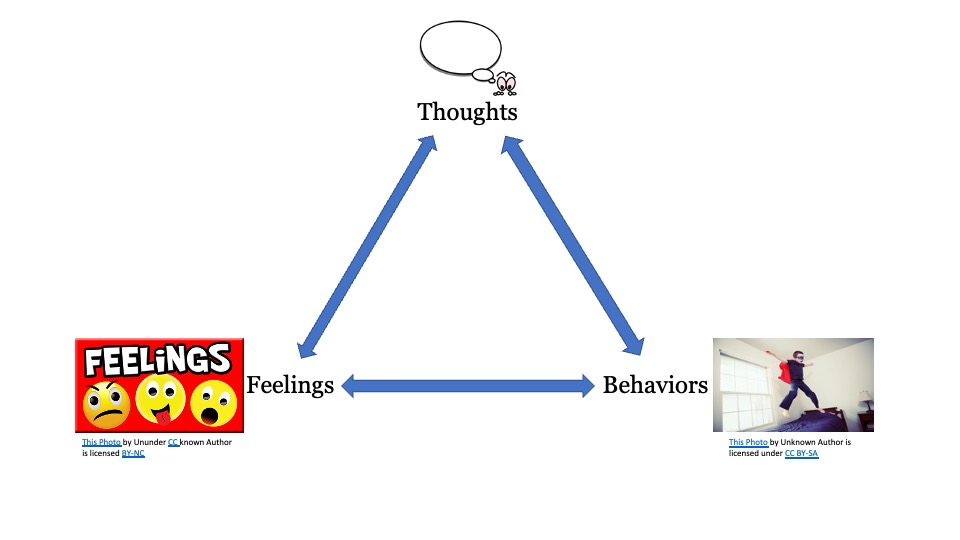Anxiety is a common human experience. While people have varying levels of anxiety, some anxiety is normal. The challenge is learning to live your life with anxiety instead of letting anxiety control you.
Meeting the challenge requires an understanding of nature vs nurture.
There is a genetic component to anxiety. There is also a nurture component to anxiety. Believe it or not, they are both passed down by your family. And it’s not the genetic piece that creates the struggle.
Our brains are wired to scan for danger. You know, the fight, flight, paralysis – survival response that every human being has. And this is very important for us to have when we are actually in danger.
Maybe your parents modeled healthy ways of managing anxiety. You probably are already living well with anxiety if this is you. Congratulations!
If your parents did not model healthy ways to manage anxiety, you may have internalized unhealthy belief systems or ways to manage it. If you are 18 years or older, you are now an adult, and can no longer blame your parents for your thoughts, feelings, behaviors, or physical and mental well-being.
Hopefully you are still reading – so here are 5 strategies for living life with anxiety:
Cognitive distortions
Cognitive distortions or faulty thinking are irrational belief systems and have an impact on how we feel and behave.
One type of cognitive distortion is called catastrophizing. This means believing the worst possible scenario will be
the outcome in a given situation.
For example, you are heading to a job interview. Job interviews are anxiety provoking for most people, but you
believe that you will be laughed at, rejected, and never get hired by anyone.
The chance of this happening is not likely and you probably don’t have any facts to back it up.
Changing how you think, can change how you feel. If you are aware that your thinking is distorted, then you have an opportunity. You can remind yourself that you have no proof, let go of the thought and focus on facts. Or you can choose to continue to believe in the distorted thought. If you choose the later, you are only making yourself miserable in the process.
(You might recognize this as part of cognitive behavioral therapy – CBT)

Taking appropriate control.
Anxiety is all about control -just trying to control things you can’t control.
When you try and control things you can’t control – like the weather, or other people’s thoughts, behaviors, or feelings, you will actually feel more out of control.
But when you only focus on the things you can control, then you will actually feel in more control.Manage your imagination
Many times I will hear my clients (or myself, sometimes) start a sentence with “what if.” And most of those times the question is fear based. So if you are asking yourself “what if……”, get curious with yourself and see if you are feeling afraid. If you are, then you are feeling anxiety.
The anxious “what if” question is convincing you that if you plan ahead for every possbile terrible (may need to check on those cognitive distortions) scenerio, then you will be able to handle it, whatever “it” is.
Obsessing on a narrative about what “might” happen doesn’t prepare you for anything. It only makes you uncomfortable at best and miserable at worst. Trust yourself that if in the future, something doesn’t work out the way you hope or life doesn’t turn out the way you plan it, you can handle it.
You are stonger and more capable than you may think. If you need help coming back to the present, use your five senses. Ask yourself, “What do I see, smell, taste, touch, and hear?” After you do that, go to the next step so you can feel the feeling of anxiety as it is, until it passes.Practice self-compassion
Kristen Neff’s practice of self-compassion is an evidenced based approach to managing painful emotions, like anxiety. Her core concepts are self-kindess vs self-judgement, common humanity vs self-isolation, and mindfulness vs over-identification. Her research shows that when you go through the steps from these concepts, your body releases oxytocin, the body’s love hormone.
The practice can change your relationship with painful emotions, like anxiety, where you start to trust yourself to be able to feel them and give yourself what you need in that moment.
Living life with anxiety may be challenging, but it doesn’t have to be debilitating. Every person experiences anxiety. It is part of the human experience. There is certainly nothing wrong with you when you do. These 4 strategies can make it easier so you don’t have to suffer. And if you find these strategies too difficult to implement on your own, reach out for support – whether a friend, family member or therapist.
Jacqueline V. Cohen is a Licensed Professional Counselor, an ADHD Certified Clinical Specialist Provider, and a Certified Clinical Hypnotherapist who works with courageous individuals that want to live authentically. You can connect with her by email or to learn more about her practice and specialties, visit her website.



